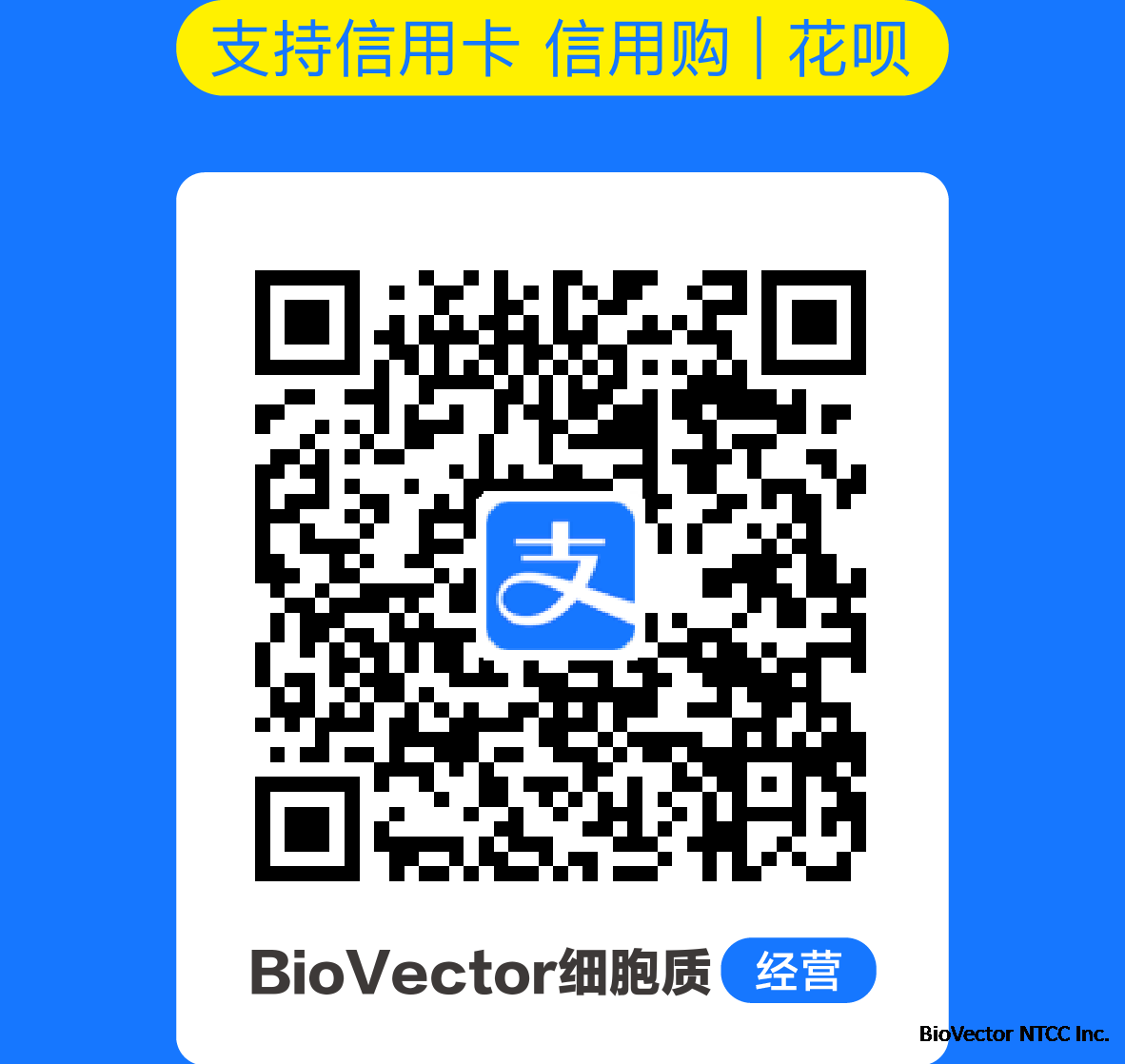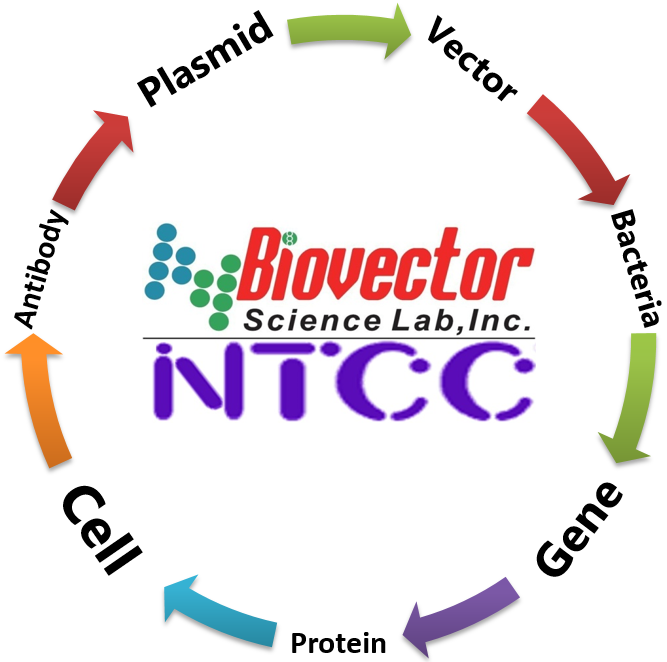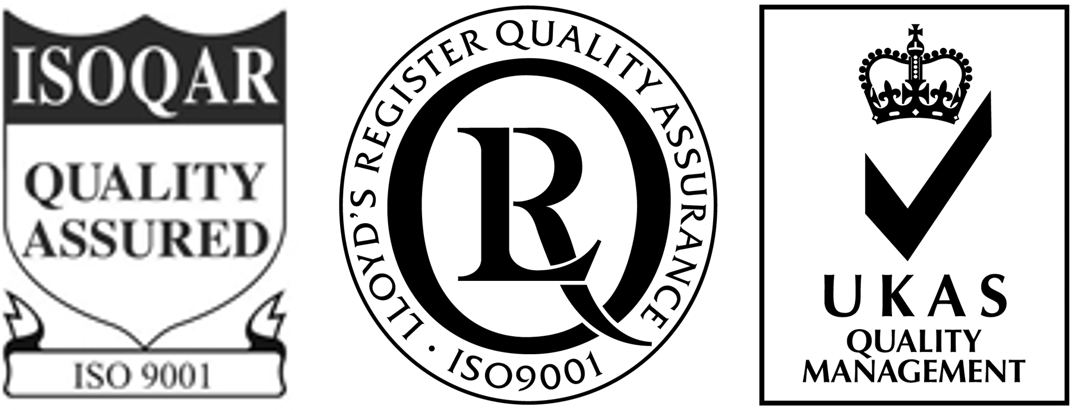CHON-001 Cell Line人长骨软骨永生化细胞株-BioVector NTCC质粒载体菌株细胞蛋白抗体基因保藏中心
- 价 格:¥49865
- 货 号:CHON-001
- 产 地:北京
- BioVector NTCC典型培养物保藏中心
- 联系人:Dr.Xu, Biovector NTCC Inc.
电话:400-800-2947 工作微信:1843439339 (QQ同号)
邮件:Biovector@163.com
手机:18901268599
地址:北京
- 已注册
CHON-001 Cell Line人长骨软骨永生化细胞株
Cat No.: NTCC-A2846
Product category
Human cells
Product type
hTERT-immortalized cell
Cell type
fibroblast
Morphology
Fibroblast-like
Tissue
Long bone; Cartilage
Disease
Normal
Applications
3D cell culture
Drug development
High-throughput screening
Growth properties
Adherent
Derivation
The chondrocyte cell line, CHON-001, was derived from the long bones of an 18-week old female fetus. The primary cells were infected by the defective retrovirus containing hTERT gene under G418 selection. The defective retrovirus was collected from the supernatant of the packaging cell line, PT67 transfected with the pLXSN vector containing hTERT gene.
Age
18 weeks gestation
Gender
Female
Immortalization method
hTERT expression
Karyotype
This is a diploid cell line of female origin. Overall, the karyology is stable with a modal chromosome number of 46 in 93% of the examined cells and a low rate of polypoidy. No consistent structural chromosomal aberrations were found in any of the cells examined.
Antigen expression
This cell line expresses the following proteins (Homo sapiens): HLA-B58, HLA-B81, HLA-Cw6, HLA-Cw8, HLA-DR7, HLA-DR12, HLA-DR52, HLA-DQ2, HLA-DQ5.
Genes expressed
positive for collagen type I and aggrecan (RT-PCR); negative for collagen type II (RT-PCR)
Unpacking and storage instructions
1. Check all containers for leakage or breakage.
2. Remove the frozen cells from the dry ice packaging and immediately place the cells at a temperature below -130°C, preferably in liquid nitrogen vapor, until ready for use.
Complete medium
The base medium for this cell line is NTCC-formulated Dulbecco's Modified Eagle's Medium, Catalog No. 30-2002. To make the complete growth medium, add the following components to the base medium:
· 0.1mg/ml G-418
· 10% heat-inactivated fetal bovine serum
Temperature
37°C
Atmosphere
95% Air, 5% CO2
Handling procedure
To ensure the highest level of viability, thaw the vial and initiate the culture as soon as possible upon receipt. If storage of the frozen culture is necessary upon arrival, store the vial in liquid nitrogen vapor phase and NOT at –70°C. Storage at –70°C will result in loss of viability.
1. Prepare a 25 cm2 or a 75 cm2 culture flask containing the recommended complete culture medium. Prior to the addition of the vial contents, the vessel containing the growth medium should be placed in the incubator for at least 15 minutes to allow the medium to reach its normal pH (7.0 to 7.6) and to avoid excessive alkalinity of the medium during recovery of the cells.
2. Thaw the vial by gentle agitation in a 37°C water bath. To reduce the possibility of contamination, keep the O-ring and cap out of the water. Thawing should be rapid (approximately 2 minutes).
3. Remove the vial from the water bath as soon as the contents are thawed, and decontaminate by dipping in or spraying with 70% ethanol. All operations from this point on should be carried out under strict aseptic conditions.
4. Transfer the vial contents to a centrifuge tube containing 9.0 mL of complete culture medium and centrifuge the cell suspension at approximately 125 x g for 5 to 7 minutes.
5. Discard the supernatant and resuspend the cells in fresh growth medium (see the batch-specific information for the recommended dilution ratio). Add this suspension to the prepared culture vessel.
6. Incubate the culture at 37°C in a suitable incubator.
7. A 5% CO2/95% air atmosphere is recommended if using the medium described on this product sheet.
Subculturing procedure
Volumes are given for T-75 flasks; proportionally reduce or increase the amount of dissociation medium for culture vessels of other sizes.
1. Remove and discard culture medium.
2. Add 2.0-3.0 mL of 0.05% Trypsin-0.53mM EDTA solution to the flask and observe cells under an inverted microscope until the cell layer is dispersed (usually within 5 to 10 minutes).
Note: To avoid clumping do not agitate the cells by hitting or shaking the flask while waiting for the cells to detach. Cells that are difficult to to detatch may be placed at 37°C to facilitate dispersal.
3. Add 6.0 to 8.0 mL of complete growth medium and aspirate cells by gently pipetting.
4. Transfer cell suspension to a centrifuge tube and spin at approximately 125 x g for 5 to 15 minutes.
5. Discard supernatant and resuspend cells in fresh growth medium.
6. Add appropriate aliquots of cell suspension to new culture vessels. An inoculum of 2 X 103 to 3 X 103 viable cells/cm2 is recommended. Subculture when cell concentration reaches between 1 x 104 and 2 x 104 cells/cm2.
7. Incubate cultures at 37°C.
Subcultivation Ratio: A subcultivation ratio of 1:4 to 1:6 is recommended
Reagents for cryopreservation
Heat-inactivated FBS supplemented with 10% (v/v) DMSO
Mycoplasma contamination
Not detected
Population doubling capacity
≥ 15 in complete growth medium
STR profiling
Amelogenin: X
CSF1PO: 10,11
D13S317: 12,14
D16S539: 11,13
D5S818: 11,12
D7S820: 12
THO1: 6,7
TPOX: 8,11
vWA: 16,17
Image:
- 公告/新闻




